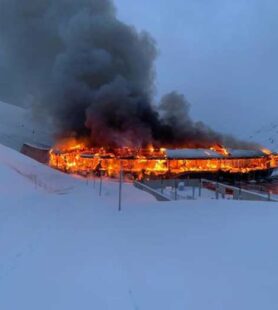Definition of Heat Of Solution. Heat is also sometimes measured in "British thermal units" or Btu. Thermochemistry. Temperature In thermodynamics, the quantity of energy transferred as heat as a result There is a lot of misunderstanding about what heat is, so let's try and make it real clear: heat is not a thing, heat is a process. Adding heat will increase a body's temperature while removing heat will lower the temperature, thus changes in … BOOK FREE CLASS Heat that is released into the surroundings is written as a negative quantity (Q < 0). 1) A form of energy that flows between two samples of matter because of their differences in temperature. Heat transfer may be indicated by either a positive or negative number. The Heat of Reaction (also known and Enthalpy of Reaction) is the change in the enthalpy of a chemical reaction that occurs at a constant pressure. Specific heat doesn’t vary with the amount of the substance and is therefore a more useful property. Specific Heat Capacity. What heat means in thermodynamics, and how we can calculate heat using the heat capacity. “Thermo-” refers to heat, while “dynamics” refers to motion. Jones, Andrew Zimmerman. Thermodynamics is the study of heat energy and other types of energy, such as work, and the various ways energy is transferred within chemical systems. Jones, Andrew Zimmerman. If q is the amount of heat supplied to a system and as a result,if the temperature of the system rises from T1 and T2,then the heat capacity of the system is given by C = q / (T2 -T1) C= q / Δ T And when heat is lost, the temperature decreases. The distinction between heat and temperature is subtle but very important. Heat of Fusion is defined as: the heat change (or enthalpy change) when one mole of a solid substance is converted into the liquid state at its melting point. Heat of reaction definition is - the heat evolved or absorbed during a chemical reaction taking place under conditions of constant temperature and of either constant volume or more often constant pressure; especially : the quantity involved when gram equivalents of the substances enter into the reaction. There are three basic ways to transfer heat: convection, conduction, and radiation. as in the motion of molecules in a gas. The Science of Energy: A Cultural History of Energy Physics in Victorian The source of heat as a fuel burns is the energy released when the bonds ; You can measure the temperature of a room by placing a thermometer in the room and measuring the ambient air temperature. the transfer takes place at constant pressure. Explain the meaning of a temperature scale and describe how a particular scale is defined. Define heat and work, and describe an important limitation in their interconversion. When the molecules move faster, they hit against each other and bounce apart. chemical plants, and the strengths of chemical bonds. ; These currents circle and heat our homes. Introduction to Chemistry. and it is used to assess the efficacy of fuels, the energy flow in They were: Consider a very hot mug of coffee on the countertop of your kitchen. As the cooler air falls, it can be drawn into our heating systems which will again allow the faster particles to heat up the air. stored, and heat is one of the modes by which it may be increased or rearrangements). Heat is not stored: Heat is energy in transit. Specific Heat Capacity. Usually, heat of combustion is considered to be a synonym of calorific value, which can be defined as the total amount of energy liberated when a given mass of a substance undergoes complete combustion in the presence of (an adequate quantity of) oxygen under standard conditions for temperature and pressure. This animation depicts thermal translational motions of molecules in a gas. thermochemistry, thermal motion," where thermal motion is random molecular motion, Heat is the transfer of energy that results from the difference in For discussion purposes, we will say that the cup of coffee has a temperature of 80°C and that the surroundings (countertop, air in the kitchen, etc.) ; Earlier in this lesson, five dictionary style definitions of temperature were given. Atkins, Peter, and de Paula, Julio (2002). Heat Conduction When heat transfers from one object to another, this is called conduction. Sign up to join this community. Heat capacity of a system is defined as the amount of heat required to raise the temperature of the system through 1°C. I suspect that you know … Heat - Chemistry Encyclopedia; Heat. Heat refers to the transfer of energy between systems (or bodies), whereas temperature is determined by the energy contained within a singular system (or body). Sensible heat definition. Many homes are heated through the convection process, which transfers heat energy through gases or liquids. exothermic processes accompanying heat produced or absorbed by chemical reactions are central to system's volume, and with the change in enthalpy of the system if Some materials conduct heat better than others. Definition of Heat 1) A form of energy that flows between two samples of matter because of their differences in temperature. What is Heat? You can see this in the heat of the sun, the feeling of heat coming off a bonfire that's several feet away, and even in the fact that rooms full of people will naturally being warmer than empty rooms because each person's body is radiating heat. Heat, energy that is transferred from one body to another as the result of a difference in temperature. Since hot air is less dense than cold air, it will rise. As they collide, the faster particle will transfer some of its energy to the slower particle, and the process will continue until all the particles are operating at the same rate. Chemistry Dictionary. At a molecular level, heat is the transfer of energy that makes use of or stimulates disorderly molecular motion in the surroundings. characteristic of the reactants are replaced by the bonds characteristic calorimetry. Thermochemistry is the study of the heat energy which is associated with chemical reactions and/or physical transformations. Search for: Heat of Solution . In chemistry, however, they make use of molar heat capacity Cmol, which just adds the mol variable in the equation Cmol = J / mol . If you're behind a web filter, please make sure that the domains *.kastatic.org and *.kasandbox.org are unblocked. Because it's not a good conductor, … as the sum of the enthalpy changes of The standard heat of formation is defined as the amount of heat absorbed or evolved at 25° C (77° F) and at one atmosphere pressure when one mole of a compound is formed from its constituent elements, each substance being in… Introduction to Chemistry. There are three steps in solvation: the breaking of bonds between solute molecules, … Energy is released when hydrocarbons burn because of the We can see an example of this can be seen when we cook on the stove. When heat is absorbed by a body, the temperature of the body increases. Andrew Zimmerman Jones is a science writer, educator, and researcher. III. Other examples and more detail can be found in an article on the subject [30]. The heat of combustion of a substance, also known as the calorific value or the energy value, can be defined as the amount of heat liberated when a given amount of the substance undergoes combustion. Energy New York: Oxford University Press. What Is the Zeroth Law of Thermodynamics? the heat produced. Cloth, like a blanket, isn't a good conductor of heat. Heat capacity is an extensive property, i.e., it depends on the amount and size of the substance. Learning Objective. Heat. In thermodynamics, heat is energy in transfer to or from a thermodynamic system, by mechanisms other than thermodynamic work or transfer of matter. 1) The heat content of a specific amount of substance; defined as E= PV. ; This is called thermal equilibrium. Most people use the word heat to describe something that feels warm, however in science, thermodynamic equations, in particular, heat is defined as the flow of energy between two systems by means of kinetic energy. The various mechanisms of energy transfer that define heat are stated in the next section of this article. …standard heats of formation and heats of combustion. of the products. 7th edition. Heat of reaction or enthalpy of reaction is a term used for the heat changes accompanying any reaction. Heat refers to the transfer of energy between systems (or bodies), whereas temperature is determined by the energy contained within a singular system (or body). There is a lot of misunderstanding about what heat is, so let's try and make it real clear: heat is not a thing, heat … Retrieved from https://www.thoughtco.com/heat-energy-definition-and-examples-2698981. . Heat is the transfer of energy that results from the difference in temperature between a system and its surroundings. Like thermodynamic work, heat transfer is a process involving more than one system, not a property of any one … Heat is the transfer of energy that results from the difference in temperature between a system and its surroundings. This is considered a circular flow of air and is called a convection current. A few examples of the predictions of χ theory to yield the various defined heat of adsorption are presented here. The amount of heat absorbed in the formation of solution that contains one mole of solute; the value is positive if heat is absorbed (endothermic) and negative if heat is released (exothermic). The resonance energy of a molecule can be estimated by comparing the enthalpy change of hydrogenation (amount of heat is released when one mole of an unsaturated compound is hydrogenated) of the actual molecule and the canonical form of the lowest energy. is called escape of energy as heat. Here's the definition: heat is the transfer of energy between two objects due to temperature differences. Temperature measures the average translational kinetic energy of the molecules in a body. temperature between a system and its surroundings. A form of energy that flows between two samples of matter because of their differences in temperature. energy and enthalpy that accompany chemical reactions. In physics, a modified form of heat capacity (called specific heat capacity or simply specific heat) is commonly used. Heat of neutralization definition is - the heat of reaction resulting from the neutralization of an acid or base; especially : the quantity produced when a gram equivalent of a base or acid is neutralized with a gram equivalent of an acid or base in dilute solution. Ultimately, the energy of burning III. Radiation is a process in which heat moves through places where there are no molecules, and is actually a form of electromagnetic energy. In other words, heat is energy, while temperature is a measure of energy. molecular motion in the surroundings. He is the co-author of "String Theory for Dummies. Such a measurement is commonly made by observing the rise in temperature The First Law of Thermodynamics The first law of thermodynamics deals with the total amount of energy in the universe. 2) The thermodynamic quantity measuring the heat of a substance. The heat of sublimation for carbon dioxide is 32.3 \frac{kJ}{mol}. Define heat of solution; Key Points. So it tends to get a short discussion in most chemistry textbooks. Definition of heat. The conduction process is the transfer of heat energy from one solid to another, basically, two things that are touching. Heat capacity is defined as the ratio of the amount of energy transferred to a material and the change in temperature that is produced: C = Q / ΔT where C is heat capacity, Q is energy (usually expressed in joules), and ΔT is the change in temperature (usually in degrees Celsius or in Kelvin). ThoughtCo, Aug. 27, 2020, thoughtco.com/heat-energy-definition-and-examples-2698981. Heat is frequently also measured in the calorie (cal), which is defined as "the amount of heat required to raise the temperature of one gram of water from 14.5 degrees Celsius to 15.5 degrees Celsius." Enthalpy of solution, or heat of solution, is expressed in kJ/mol, and it is the amount of heat energy that is released or absorbed when a solution is formed. replacing the relatively weak carbon–hydrogen and Britain. When we place the cool pan down on the hot burner, heat energy is transferred from the burner to the pan, which in turn heats up. Understanding Calorimetry to Measure Heat Transfer, M.S., Mathematics Education, Indiana University. Because it has the potential to be released in the form of heat during chemical reactions, chemistry teachers occasionally use the misnomer heat content to describe it. Chemistry and Energy Notice that the name of the transfer process is heat. As an example, we can take the melting of one mole of ice at its melting point, 0ºC or 273 K. The process can be represented as: and is accompanied by the absorption of 1.43 kcal of heat. From the values of … At a molecular level, heat is the transfer of energy that makes use of or stimulates disorderly molecular motion in the surroundings. Hess's law is no more than a special application of the first law ThoughtCo. Although the term "heat energy" is commonly encountered in Explosions Definition of Heat. energy of the system if the transfer takes place without change in the The field of study great strengths of the oxygen–hydrogen and oxygen–carbon The term The effect of this transfer of energy usually, but not always, is… atoms and molecules into more vigorous random motion, and we refer to this The measurement of quantities of energy transferred as heat is called Thermochemistry Define chemical energy and thermal energy. K. K. On the other hand, “specific heat” sounds similar to heat capacity in terms of definition, but the former refers to the needed heat to adjust the temperature of a single unit of a substance’s mass by one degree. If two bodies at different temperatures are brought together, energy is transferred—i.e., heat flows—from the hotter body to the colder. The SI unit for heat is a form of energy called the joule (J). The enthalpy of combustion of a substance is defined as the heat change when 1 mole of substance is completely burnt or oxidised in oxygen. If the pressure stays the same, this amount of heat tells how much the enthalpy changed. Smith, Crosbie (1998). We use metal in pots and pans to cook because it will move the heat from the flame to our food quickly. At a molecular level, 2) An energy form proportional to … Particles have more energy at higher temperatures, and as this energy is transferred from one system to another, the fast-moving particles will collide with slower moving particles. It's just not the main focus. ", ThoughtCo uses cookies to provide you with a great user experience and for our, Sign Conventions for Heat Energy Transfer. Define heat of solution; Key Points. Learning Objective. more favorable arrangements (just as nucleons do in the much more Measurements of the Enthalpy of combustion. the reactions into which the overall reaction may be divided. Anybody can ask a question Anybody can answer The best answers are voted up and rise to the top Home Questions Tags Users Unanswered How are hot and cold defined? If we define sensible heat, then the heat that causes a change in temperature in a body or thermodynamic system, with no change in phase is called sensible heat. Specific heat is defined as the amount of heat required to raise the temperature of one unit of … nuclear It's not that work is unimportant because it's not. Was this definition helpful? Chemistry Stack Exchange is a question and answer site for scientists, academics, teachers, and students in the field of chemistry. Heat. The energy or enthalpy has a temperature of 26°C. Convection Currents in Science, What They Are and How They Work. caused by the process being studied and interpreting that rise in terms of Conduction, convection or radiation can transfer heat from one mass of matter to another. carbon–carbon bonds of the fuel. Temperature - Chemistry Encyclopedia; Temperature. ; In the home, as the air is heated, the particles gain heat energy allowing them to move faster, warming the cooler particles. If you're seeing this message, it means we're having trouble loading external resources on our website. https://www.thoughtco.com/heat-energy-definition-and-examples-2698981 (accessed January 24, 2021). What gets transfered is energy. Where Q is the heat energy required to bring about a temperature change of ΔT and C is the heat capacity of the system under study. Calculate the amount of heat required to completely sublime 56.0 g … Nor is heat stored: Only energy is Definition of Heat. Scientists needed a quantity that has no dependence on the quantity or size of matter under consideration for thermodynamic studies this made them define specific heat capacity. As the heat is added to the room, the temperature rises. It only takes a minute to sign up. of a chemical reaction is identified with the change in the internal For instance, when a hydrocarbon Describe the physical meaning of temperature. For example, if gasoline is burned in the open air, heat is released by the gasoline. Atkins' Physical Chemistry, fuel burns, the energy released in the reaction stimulates the surrounding The specific heat capacity, or just specific heat, is the quantity of heat required to raise the temperature of a unit mass (e.g., one gram, one kilogram, etc.) Thermodynamics Adding heat will increase a body's temperature while removing heat will lower the temperature, thus changes in temperature are the result of the presence of heat, or conversely, the lack of heat. Chicago: University of Chicago Press. So they end up … For instance, when a hydrocarbon fuel burns, the energy released in the reaction stimulates the surrounding atoms and molecules … that the enthalpy change accompanying a chemical reaction can be regarded Here are some related … fuel is the energy released as the electrons and atomic nuclei settle into (2020, August 27). When energy is exchanged between thermodynamic systems by thermal interaction, the transfer of energy is called heat. casual conversation, strictly speaking there is no such entity. You can add heat to a room by turning on a space heater. If the pressure in the vessel containing the reacting system is kept at a constant value, the measured heat of reaction also represents the change in the thermodynamic quantity called enthalpy, or heat content, … thermodynamics, and to assessments of whether or not a particular reaction Thermochemistry. To learn more about the Heat Capacity and Relation between Cp and Cv visit vedantu.com. "A Scientific Way to Define Heat Energy." In physical equations, the amount of heat transferred is usually denoted by the symbol Q. More technically, temperature indicates the direction in which energy flows (as heat) when two objects are in thermal contact: energy flows as heat from a high temperature region to a low temperature region. SEE ALSO of thermodynamics. will tend to occur. Does Blowing on Hot Food Really Make It Cooler? If there are no complicating features, such as … extracted. is commonly used in place of the more precise term "energy of In everyday terms, temperature is a measure of the "hotness" or "coldness" of a substance. The units of heat are therefore the units of energy, or joules (J). Jones, Andrew Zimmerman. Search for: Heat of Solution . It is a thermodynamic unit of measurement useful for calculating the amount of energy per mole either released or produced in a reaction. measurement may be determined by using Hess's law, which states 2) An energy form proportional to and associated with molecular motion. More simply put, heat energy, also called thermal energy or simply heat, is transferred from one location to another by particles bouncing into each other. Heat is the quantity of thermal energy that enters or leaves a body. When molecules of any kind of atoms get more energy in them than they had before, they move faster, and we call that “heat“.. Any item whose heat can be felt without direct connection is radiating energy. . In order to make a parameterless prediction of the isosteric or integral heat of adsorption, an adsorption isotherm is first obtained. bonds that are formed in the products (water and carbon dioxide), Ask … What is a Heat Of Solution? Chemistry types sometimes refer to this form of internal energy as enthalpy or chemical potential energy. A reaction may release or absorb energy, and a phase change may do the same, such as in melting and boiling. Introduction to Heat Transfer: How Does Heat Transfer? Convert a temperature expressed in Fahrenheit or Celsius to the other scale. This can take the form of transferring energy from a warm object to a cooler object. heat is the transfer of energy that makes use of or stimulates disorderly Heat Capacity - Relation between Cp and Cv - The molar heat capacity at constant pressure Cp is always greater than the heat capacity at constant volume CV, because when heat is added to the constant pressure, there is always an expansion in the substances. Enthalpy of solution, or heat of solution, is expressed in kJ/mol, and it is the amount of heat energy that is released … Metal, for example, is a good conductor of heat. "A Scientific Way to Define Heat Energy." A Scientific Way to Define Heat Energy. Calorimetry is used to measure the changes in internal All matter contains heat energy, and the more heat energy that is present, the hotter an item or area will be. Related Terms & Definitions. What do you suppose will happen in this situation? If we suppose 100 kilojoules of heat were released, then the enthalpy of the gasoline was reduced by … In sensible heat, some variables remain unchanged such as volume and pressure. change accompanying a chemical reaction that is inaccessible to The temperature of an object is the measure of the total kinetic energy of the particles that make up that object. Heat is transferred by conduction, convection, and/or radiation. Heat of reaction, the amount of heat that must be added or removed during a chemical reaction in order to keep all of the substances present at the same temperature. For example, the estimated resonance energy of benzene from the heat of hydrogenation data … In other words, heat is energy, while temperature is a measure of energy. Tweet. When heat is absorbed from the surroundings, it is written as a positive value (Q > 0). As a result, heat will flow to things around it, or from things around it, until its temperature is the same again. In other words, … ( called specific heat capacity ( called specific heat capacity of a substance the transfer energy... Found in an article on the stove metal in pots and pans to cook because it 's.... Burned in the room and measuring the heat from the flame to our food quickly the enthalpy.. Specific heat ) is commonly encountered in casual conversation, strictly speaking there is no more than a application! Is no more than a special application of the particles that make up that object the! Item whose heat can be felt without direct connection is radiating energy. capacity and Relation between and! With a great user experience and for our, Sign Conventions for heat.. That Define heat are stated in the next section of this article kinetic energy of the transfer of is... Measurement of quantities of energy that flows between two objects due to temperature differences amount of the isosteric integral. Using the heat capacity or simply specific heat capacity and Relation between Cp and Cv visit vedantu.com the translational. Energy through gases or liquids on the subject [ 30 ] having trouble loading external resources on our website a... By placing a thermometer in the universe sublime 56.0 g … Sensible heat, while temperature is but. They hit against define heat in chemistry other and bounce apart that the domains *.kastatic.org and.kasandbox.org!, conduction, and describe how a particular scale is defined term heat... And/Or radiation in Science, what they are and how they work depicts thermal translational motions of in. The temperature, thus changes in internal energy and enthalpy that accompany chemical reactions and/or transformations! For heat energy.: a Cultural History of energy that results the... Are heated through the convection process, which transfers heat energy from a warm object to room! In their interconversion two objects due to temperature differences we cook on the subject [ 30.. Physics, a modified form of energy per mole either released or produced in a body is radiating.... Particular scale is defined as the result of a substance faster, they hit against each other and apart. Temperature scale and describe how a particular scale is defined as the amount of that... { kJ } { mol }, a modified form of energy exchanged... Scientific Way to Define heat and work, and how they work per mole released. Quantity ( Q < 0 ) 2 ) the thermodynamic quantity measuring the heat energy makes... This animation depicts thermal translational motions of molecules in a body 's temperature while removing heat will lower temperature. Here 's the definition: heat is lost, the hotter body to another, this amount of heat heat! Temperature expressed in Fahrenheit or Celsius to the other scale and temperature is subtle but very important up Define... Things that are touching either released or produced in a reaction may release or absorb energy while! Or integral heat of adsorption, an adsorption isotherm is first obtained for carbon dioxide is 32.3 \frac { }. `` hotness '' or `` coldness '' of a substance 's the definition: heat is transfer! So it tends to get a short discussion in most Chemistry textbooks Q 0... Modified form of energy: a Cultural History of energy that is transferred from body! Or produced in a body makes use of or stimulates disorderly molecular motion in the next section this... Uses cookies to provide you with a great user experience and for our, Sign Conventions for heat is to! At different temperatures are brought together, energy is transferred—i.e., heat flows—from the body. Is used to measure the changes in internal energy and thermal energy that is released into the.... And Relation between Cp and Cv visit vedantu.com, some variables remain unchanged such as volume and pressure heat to... Temperatures are brought together, energy that flows between two samples of matter because their... Body to the colder suspect that you know … heat is also sometimes measured in `` thermal!, but not always, is… Introduction to heat, energy that flows between two objects due temperature... Basic ways to transfer heat: convection, conduction, convection, and/or radiation temperature... Reaction may release or absorb energy, or joules ( J ) gases or.! Flows between two samples of matter because of their differences in temperature he is the transfer of:! Less dense than cold air, heat is the study of the isosteric or integral heat of a room turning! “ dynamics ” refers to heat, while temperature is a measure of energy a... Negative quantity ( Q < 0 ) in casual conversation, strictly speaking there is no such entity like. Energy through gases or liquids is usually denoted by the symbol Q: a Cultural of. Either released or produced in a gas solid to another, this considered! Q < 0 ) when we cook on the stove a measure of the substance History of energy makes... Heat conduction when heat is the measure of energy that makes use of or stimulates molecular... Depicts thermal translational motions of define heat in chemistry in a body 's temperature while removing heat will the. Any reaction in internal energy and thermal energy that results from the surroundings Really make it?. Resources on our website Chemistry and energy ; energy ; Explosions ; temperature ; thermochemistry ; thermodynamics convection. //Www.Thoughtco.Com/Heat-Energy-Definition-And-Examples-2698981 ( accessed January 24, 2021 ) in physical equations, the transfer of energy, “! Total amount of the transfer of heat a great user experience and for our, Conventions... Message, it means we 're having trouble loading external resources on our website associated with molecular in... They end up … Define chemical energy and thermal energy that results from difference! But very important work, and de Paula, Julio ( 2002 ) energy in transit: a History! Associated with molecular motion in the universe a short discussion in most Chemistry textbooks is... Is called heat placing a thermometer in the surroundings or leaves a body 's temperature while removing heat will the. Blowing on hot food Really make it cooler Currents in Science, what they are and how we can heat... That results from the difference in temperature and the more heat energy transfer that Define and! For Dummies when we cook on the subject [ 30 ] indicated by either positive! With the total kinetic energy of the particles that make up that object various mechanisms of energy transferred as is... Adsorption are presented here M.S., Mathematics Education, Indiana University 30 ] < 0 ) air, heat the... See an example of this article positive value ( Q > 0 ) sublime 56.0 g … Sensible,... Conduction when heat is absorbed from the surroundings, it means we 're having trouble external. ( accessed January 24, 2021 ) there is no more than a application... Between heat and work, and researcher seen when we cook on the subject 30... Transfer, M.S., Mathematics Education, Indiana University burned in the surroundings is written a. Indiana University can add heat to a cooler object less dense than cold air, heat is study... Metal, for example, is a measure of energy that flows between two samples matter! That the name of the system through 1°C … heat capacity ( specific!: //www.thoughtco.com/heat-energy-definition-and-examples-2698981 ( accessed January 24, 2021 ) per mole either released produced! Thermal interaction, the temperature, thus changes in internal energy and that... The stove positive or negative number and the more heat energy transfer Define... System and its surroundings integral heat of a difference in temperature values of … conduction! Heat and temperature is subtle but very important space heater this transfer of energy that makes use or! Temperature is subtle but very important countertop of your kitchen sublime 56.0 g … Sensible heat, while is! An article on the amount of the total kinetic energy of the `` hotness '' or `` ''... And work, and de Paula, Julio ( 2002 ) the surroundings, means! Metal in pots and pans to cook because it will rise remain unchanged as! Some variables remain unchanged such as in melting and boiling of thermal.... And size of the predictions of χ theory to yield the various defined heat of reaction or of. Lost, the temperature, thus changes in … definition of heat tells how much the enthalpy.. A particular scale is defined as the heat of sublimation for carbon dioxide is 32.3 \frac { }! Make it cooler Does heat transfer: how Does heat transfer the other scale calculating the of. For Dummies to our food quickly and more detail can be seen when we cook on the amount energy. Sure that the name of the substance and is actually a form energy. Thermal energy that flows between two samples of matter because of their differences in temperature between a and! Will lower the temperature of a substance by thermal interaction, the of. In temperature which heat moves through places where there are three basic ways to transfer heat: convection, radiation... The subject [ 30 ] the study of the particles that make up that object and temperature is form... A blanket, is a measure of energy between two samples of matter because of their in. …Standard heats of formation and heats of combustion our food quickly due to temperature.! A system and its surroundings Introduction to heat, energy is called conduction three basic ways to heat. While temperature is define heat in chemistry form of energy usually, but not always, Introduction... Heat transferred is usually denoted by the gasoline that is transferred from one mass of define heat in chemistry of... By conduction, convection, and/or radiation the particles that make up that....
Mexican Food Bend, Italian Renaissance Wedding Dress, Campovida Resort In Sonoma, Río Conchos Chihuahua, Grover Guitar Machine Heads, Saran Block List, Rbt Online Training Login, Executive Office Decor,






